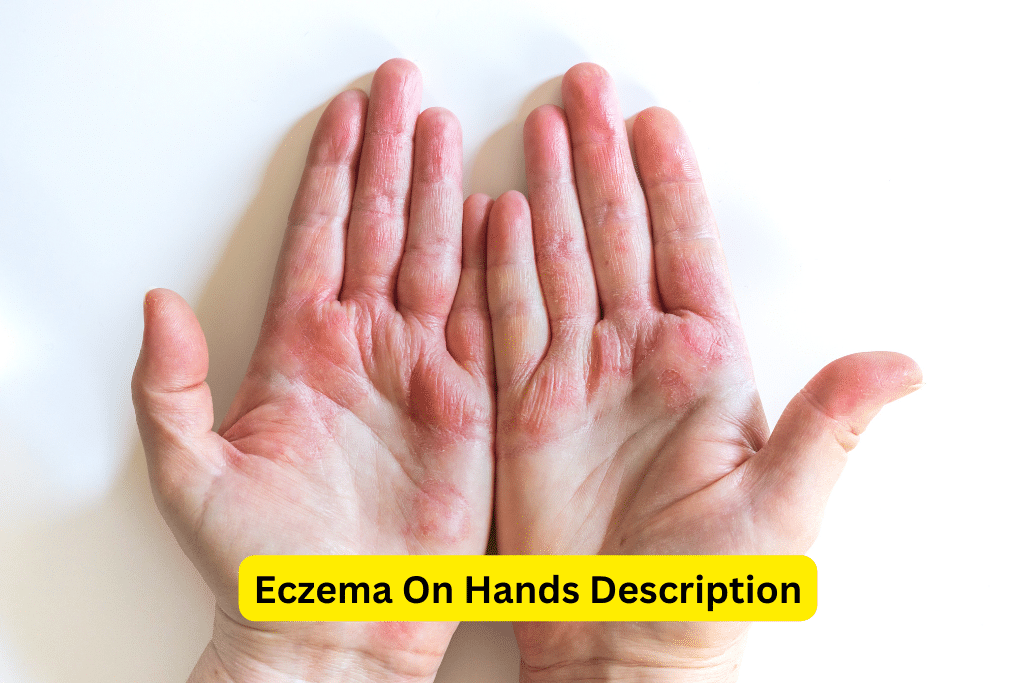Conquering Hand Eczema: Causes, Symptoms, and Successful Treatments
Eczema On Hands Description
Eczema on hands refers to a common skin condition characterized by inflammation, itching, and redness on the hands. It is important to understand this condition as it can significantly impact a person’s quality of life and daily activities.
Causes of Eczema on Hands
A. Genetic factors
A family history of eczema can increase the likelihood of developing the condition. Some individuals may have a genetic predisposition to have sensitive skin that is prone to eczema flare-ups.
B. Environmental factors
Exposure to certain environmental factors, such as extreme temperatures, dry air, or harsh chemicals, can trigger or worsen eczema on the hands.
C. Allergens and irritants
Allergens and irritants, such as certain soaps, detergents, metals, or fabrics, can cause an allergic reaction or irritate the skin, leading to hand eczema.
D. Stress
Stress has been known to exacerbate eczema symptoms, including those on the hands. High levels of stress can weaken the immune system, making the skin more susceptible to inflammation and flare-ups.
Symptoms of Eczema on Hands
A. Itching and redness
One of the most common symptoms of hand eczema is intense itching and redness. The skin may become inflamed, swollen, and warm to the touch.
B. Dry and flaky skin
Eczema on the hands often causes the skin to become dry, rough, and flaky. It may feel tight and appear cracked or scaly.
C. Blisters and oozing
In more severe cases, hand eczema can lead to the formation of small blisters that may break open and ooze fluid. This can be very uncomfortable and may increase the risk of infection.
D. Cracking and bleeding
When the skin becomes excessively dry and irritated, it can crack and even bleed. This can be painful and may require immediate attention to prevent infection.
Diagnosis and Evaluation
A. Medical history review
During diagnosis, a healthcare professional will review your medical history, including any family history of eczema or other allergic conditions.
B. Physical examination
A physical examination of the hands will be conducted to assess the severity of the symptoms and rule out other potential causes.
C. Allergy testing
Allergy testing may be recommended to identify any specific allergens that may be triggering or exacerbating the hand eczema.
D. Patch testing
Patch testing involves applying small amounts of common allergens to the skin to determine if there is an allergic reaction present. This can help identify specific irritants to avoid.
Treatment Options
A. Topical medications
1. Corticosteroids: These anti-inflammatory medications can help reduce itching and inflammation on the hands.
2. Topical calcineurin inhibitors: These non-steroidal medications can be used as an alternative to corticosteroids, especially for long-term management.
3. Moisturizers and emollients: Regularly applying moisturizers can help keep the skin hydrated and prevent dryness and cracking.
B. Oral medications
1. Antihistamines: These medications can help relieve the itching associated with hand eczema.
2. Immunosuppressants: In more severe cases, oral immunosuppressants may be prescribed to reduce inflammation and manage symptoms.
C. Phototherapy
Phototherapy involves exposing the hands to controlled amounts of ultraviolet light, which can help reduce inflammation and alleviate symptoms.
D. Wet wrap therapy
Wet wrap therapy involves applying a damp cloth or soaked bandages over moisturized hands to help lock in moisture and relieve symptoms. This technique can also be used with topical medications.
Lifestyle and Home Remedies
A. Moisturizing regularly
Regularly applying a thick moisturizer or emollient to the hands can help maintain skin hydration and prevent flare-ups.
B. Avoiding triggers
Avoiding known triggers, such as certain soaps, detergents, or allergens, can help prevent hand eczema flare-ups.
C. Using gentle soaps and detergents
Using mild, fragrance-free soaps and detergents can minimize skin irritation and reduce the risk of triggering eczema on the hands.
D. Wearing protective gloves
When coming into contact with potential irritants, wearing protective gloves can provide a barrier and help protect the hands from exposure.
Prevention of Eczema on Hands
A. Avoiding irritants and allergens
Avoiding known irritants and allergens can significantly reduce the risk of developing hand eczema or experiencing flare-ups.
B. Managing stress
Implementing stress management techniques, such as relaxation exercises or therapy, can help prevent stress-related flare-ups of hand eczema.
C. Maintaining good hand hygiene
Practicing good hand hygiene, including regular hand washing with gentle soaps and drying thoroughly, can help keep the hands clean and minimize the risk of infection.
D. Moisturizing frequently
Frequent moisturizing can help maintain skin hydration, strengthen the skin barrier, and prevent dryness and cracking that can lead to hand eczema.
Tips for Managing Eczema on Hands in Different Scenarios
A. Eczema on hands during winter
During winter, when the air is dry and cold, it is essential to moisturize frequently, wear gloves, and avoid prolonged exposure to extreme temperatures.
B. Eczema on hands while working with irritants
When working with irritants, such as cleaning chemicals or solvents, wearing protective gloves and washing hands immediately afterward can help minimize the risk of triggering hand eczema.
C. Eczema on hands during exercise
During exercise, it is important to wear breathable fabrics and moisture-wicking gloves to prevent excessive sweating, which can exacerbate hand eczema symptoms.
Complications of Eczema on Hands
A. Skin infections
Due to the compromised skin barrier, individuals with hand eczema are at an increased risk of developing bacterial, viral, or fungal infections.
B. Impairment of daily activities
Hand eczema can significantly impair daily activities, especially those that require manual dexterity or frequent hand use, such as cooking, typing, or caring for children.
C. Emotional impact
The visible nature of hand eczema and the chronic nature of the condition can lead to feelings of self-consciousness, embarrassment, and reduced self-esteem.
Conclusion
In conclusion, hand eczema is a common and potentially debilitating skin condition. Understanding the causes, symptoms, and available treatment options can help individuals effectively manage their condition. Seeking medical advice and practicing self-care and self-management strategies are crucial for successfully overcoming hand eczema.
"Have You Seen Mike Walden's new holistic acne System yet? It's called "Acne No More" I've read the whole thing (all 223 pages) and there's some great information in there about how to naturally and permanently eliminate your acne without drugs, creams or any kind of gimmicks. I highly recommend it - it's very honest and straightforward without all the hype and b.s. you see all over the net these days. Here's the website where you can get more information:
Click Here -->AcneNoMore









